The British Business Bank is the UK's economic development bank. Our mission is to drive sustainable growth and prosperity across the UK, and to enable the transition to a net zero economy, by supporting access to finance for smaller businesses.
The Challenge
Smaller businesses comprise a vital part of the modern, green economy and they need support to adapt and innovate.
Building a green economy will require entire industries to transform and new technologies to be developed, scaled and diffused. As well as reducing their own footprint, which accounts for around half of UK business emissions, smaller businesses have a critical role to play in the transformation. They will provide many of the skilled services and innovative technologies necessary for others to decarbonise and reduce their wider environmental impact. Despite the urgency, many SMEs will struggle to fulfil these essential roles without better access to finance.
The green economy challenge spans across equity, debt and information solutions. This factsheet focuses on equity. Future factsheets on debt and information will be produced in due course.
Equity
A lack of equity funding for early-stage clean/climate tech companies creates barriers to developing net zero innovation.
A lack of later stage (Series B+) VC capital prevents capital intensive, innovative companies from scaling up.
Debt
SMEs face challenges obtaining long-term debt to finance the adoption of low carbon measures, often due to long payback periods and uncertainty about residual values of green assets (e.g. more energy efficient equipment).
Information
SMEs lack information about the benefits of adopting low carbon measures, how to finance them or when to do it.
The Opportunity
Building the modern, green economy is one of the Bank’s strategic objectives. An important part of this is a commitment to finance groundbreaking solutions to climate change.
The Bank’s latest Equity Tracker illuminates consistent growth in equity investment to UK Cleantech Companies. Investment increased 50% to £0.9bn in 2022, which marked the seventh consecutive year of increased investment, bucking the downward trends of the wider SME equity market. However, more recent data shows net zero focused companies have not been immune from the wider slowdown in equity markets. The number of net zero related equity deals fell 18% and investment fell 45% in the first three quarters of 2023 compared to the same quarters in 2022. Read footnote text 1
As the Government’s Green Finance Strategy emphasises, decarbonising by 2050, will require a step-change in investment levels and there are a range of factors that affect funding, including investment cycles. Read footnote text 2
There is an important role for the public sector, and the British Business Bank specifically, to unlock and catalyse greater levels of green equity finance. Our activities have the potential to absorb risk and stimulate investment in key areas.
-
Return to footnote location
1
British Business Bank, Small Business Finance Market Report (2024)
-
Return to footnote location
2
HM Government, Mobilising Green Investment - 2023 Green Finance Strategy (2023)
What we’re doing
Investing in green solutions
The Bank and its partners have a strong track record of investing in pioneering small businesses that develop and scale innovative technologies. These businesses often rely on equity financing to support expensive R&D activities, or bridge from concept to commercial viability. The Bank’s commercial arm, British Patient Capital recognises this; 3% of the British Business Bank’s equity investment since 2014 has gone to the clean tech sector.
Since it opened in 2014, the Bank has invested £351 million into 89 cleantech companies through the Bank’s equity programmes.
Thanks to our support through investor partners, businesses delivering important solutions, such as sustainable battery storage, smart engines for electric vehicles, fuel and chemical generation from waste biomass, and 100% recycled interior design products. A great example is the £10m invested via the Bank’s Regional Angels Programme into Green Angel Syndicatem the UK’s largest network of specialist investors in addressing climate change.
Presently, the Bank relies on PitchBook data to quantify its green investments, but looks forward to implementing the UK’s forthcoming Green Taxonomy through HM Government’s consultation and launch periods.
£351 m
invested into clean tech companies through the Bank’s equity programmes since 2014.
Case Study: Iceotope
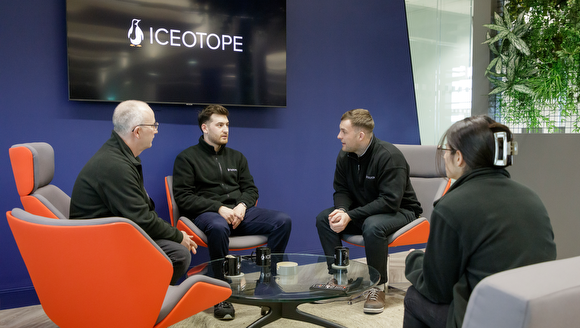
Iceotope is a Sheffield-based company making one of the world’s fastest growing industries, data centres, more sustainable. Iceotope’s unique liquid-based precision cooling technology provides a low-cost, high-performance solution for efficient cooling of data centre infrastructure, whilst also reducing carbon emissions and water usage. Iceotope’s leading technology has led the company to secure partnerships with some of the largest corporations in the industry, including HPE, Intel and Lenovo.
British Patient Capital invested £5m directly in the company as part of Iceotope’s £30m equity funding round in 2022 via Future Fund: Breakthrough. The investment was alongside deep tech specialist Northern Gritstone and ABC Impact among others.
Funds from the financing have enabled Iceotope to bolster its senior leadership team, accelerate its commercial roadmap and continue investing in category-leading innovation.
Engagement and research
Recognising that the scale of green investments required to meet Government ambitions will require us to operate in new ways, the Bank actively seeks opportunities to learn from others.
In particular, it recognises the value of sharing best practices with international institutions, including comparable development banks in other countries who are grappling with similar challenges. For this reason, it instigated the launch of OECD’s Platform on Financing SMEs for Sustainability in 2022. The Platform’s benefits are numerous, including access to bespoke research and opportunities to shadow financial institutions who are equally ambitious on improving green equity investment in SMEs, such as the Business Development Bank of Canada.
The Bank also understands that its work in this area must fit into the bigger picture of public and private activity that is rapidly evolving. As such, it conducts mapping of relevant initiatives, such as the Government’s series of net zero investor roadmaps, the Transition Plan Taskforce, and various other bodies and delivery groups. This highlights opportunities for collaboration and ensures that the Bank’s work can complement and build upon external activities.
Meanwhile, sustainability lenses have increasing weight in the Bank’s own research pieces. The Bank’s 2021 Smaller Business and the Transition to Net Zero Report quantified SMEs contribution to UK emissions. Our 2023 Equity Tracker Report highlights recent clean tech investment trends.
Developing our approach to green investment
In some areas, the Bank is developing new strategic approaches to green investment based on research and engagement outlined above. For example, target investments can be identified through analysis of investment opportunities with criteria relating to green economy market failures applied.
In 2024, UK Government plans to publish the Green Taxonomy which will provide a framework to define what economic activities can be labelled green. The Bank will welcome this intervention as a tool to guide and optimise its measurement and thinking around green investment.
Case Study: Nova Pangaea Technologies
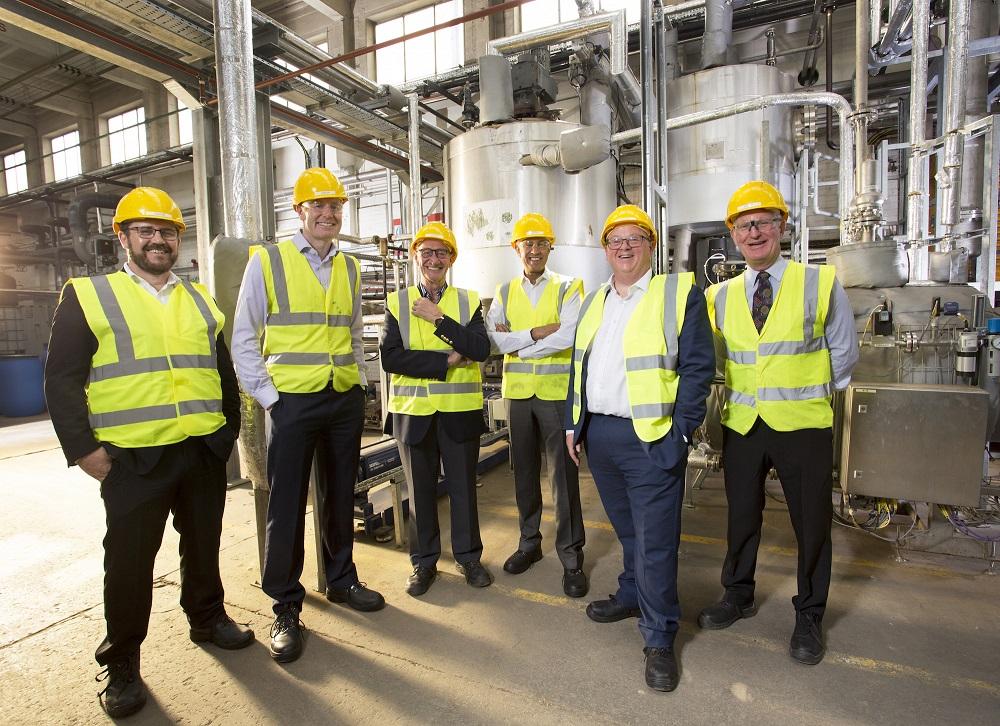
Nova Pangaea’s technology converts wood and crop residues into sustainable biocarbons, biopolymers, biochemicals and advanced biofuels, offering new sources of income for agricultural enterprises. It has the potential to reduce reliance on fossil fuels without taking up land suitable for producing food.
Funding from Regional Angels Programme partner Par Equity, and others, gave Nova Pangaea the working capital it needed to establish new commercial partnerships while advancing its technology.
The finance will allow the Redcar based company to fund its operations through to IPO. Nova Pangaea expects this to afford it the scale to establish a first-of-a-kind 2G plant in the UK, which will open up opportunities in the sustainable aviation fuel market.
Case Study: CFP Composites
CFP Composites manufacturers revolutionary ultra-lightweight heat resistant materials, used to replace heavy metal parts in a wide range of applications. The business secured a £1.8m funding round to bring its next-generation carbon fibre panels to market.funding round to bring its next-generation carbon fibre panels to market.
Leading venture capital firm Midven announced a £750,000 investment from the Midlands Engine Investment Fund (MEIF), alongside a further £1,078,000 from private investor network Growthdeck.
The Dudley-based firm has developed a time-and cost-efficient automated process which produces zero waste and provides a 50 per cent reduction in costs compared to current processes.
Unlike any other form of carbon fibre, its finished panels are heat resistant to 1,500 degrees centigrade for up to four hours. This feature, combined with the panel’s ultra-light weight, is driving substantial end user demand across a range of industries including aeronautical, rail and energy. CFP will use the new funding to accelerate sales and marketing activity across these sectors.
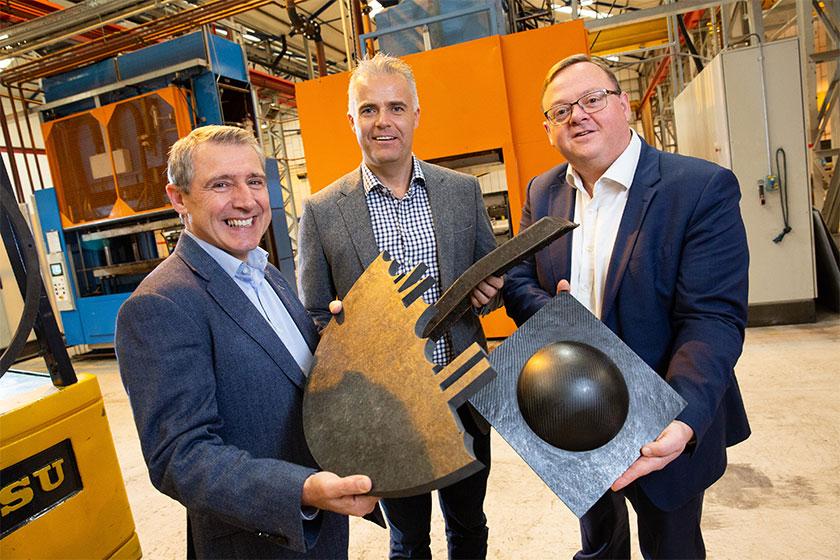
Looking Ahead
The British Business Bank understands that green investment in SMEs must be accelerated in order for the UK to meet its sustainability commitments.
Later stage investment in innovative sustainability businesses will be critical to the transition.
Key UK Government initiatives, such as the Green Industrial Growth Accelerator (GIGA), and the Bank’s own potential Growth Fund, may present new opportunities for building the modern, green economy.
The Bank will continue to work closely with Government to identify and consider ways to grow investment in small businesses helping to unlock critical pathways to decarbonise and restore nature.

Additional Resources
We have published several research reports exploring access to green equity finance:
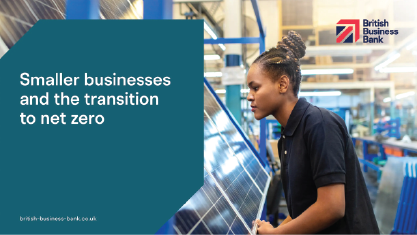
Smaller Businesses and the Transition to Net Zero highlighting the crucial role SMEs play in driving the changes required in the UK’s transition to a net zero economy.
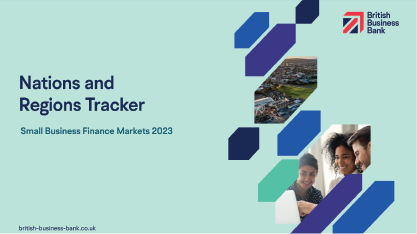
Nations and Regions Tracker 2023 looks at how individual nations and regions are beginning their net zero journeys from different starting points.
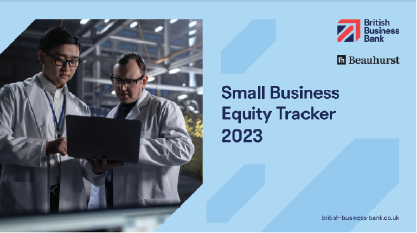
Small Business Equity Tracker 2023 an overview of recent trends in equity investment into UK SMEs, including clean tech businesses.
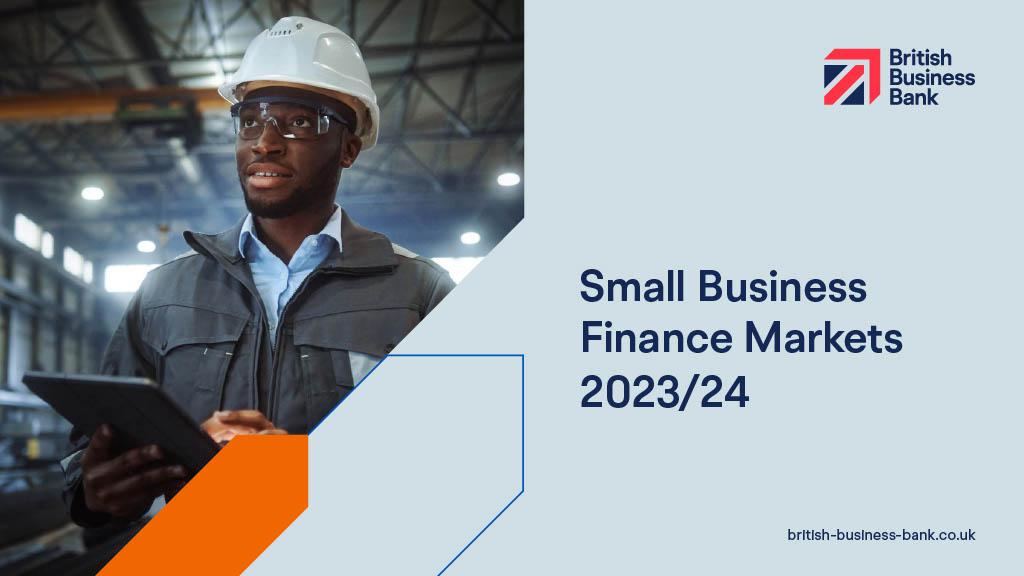
Small Business Finance Markets 2024 identifies how equity finance can supports eco-innovators within the smaller business population.
Get in contact
If you would like to meet to discuss the British Business Bank’s work backing innovation and breaking down barriers to small business finance, please contact us below:
Public Affairs email us